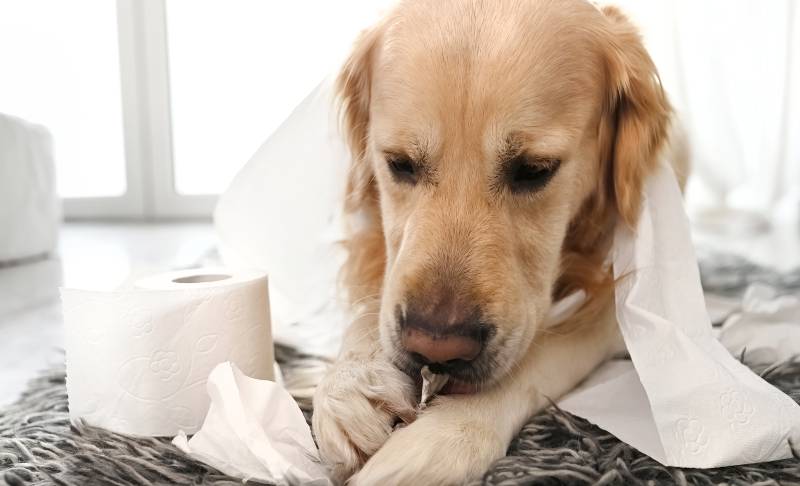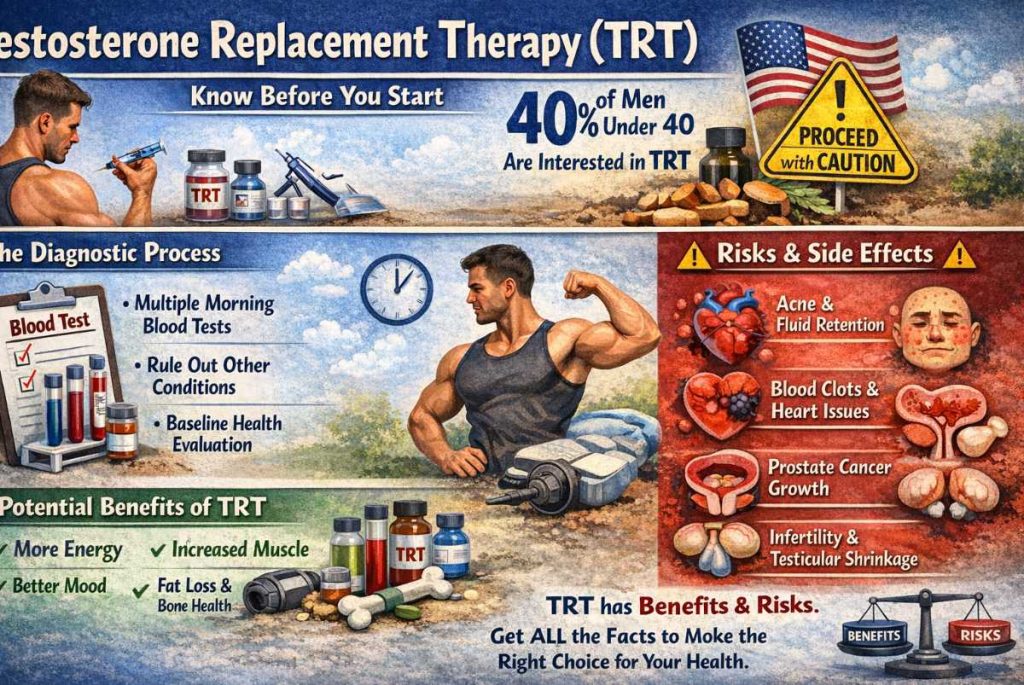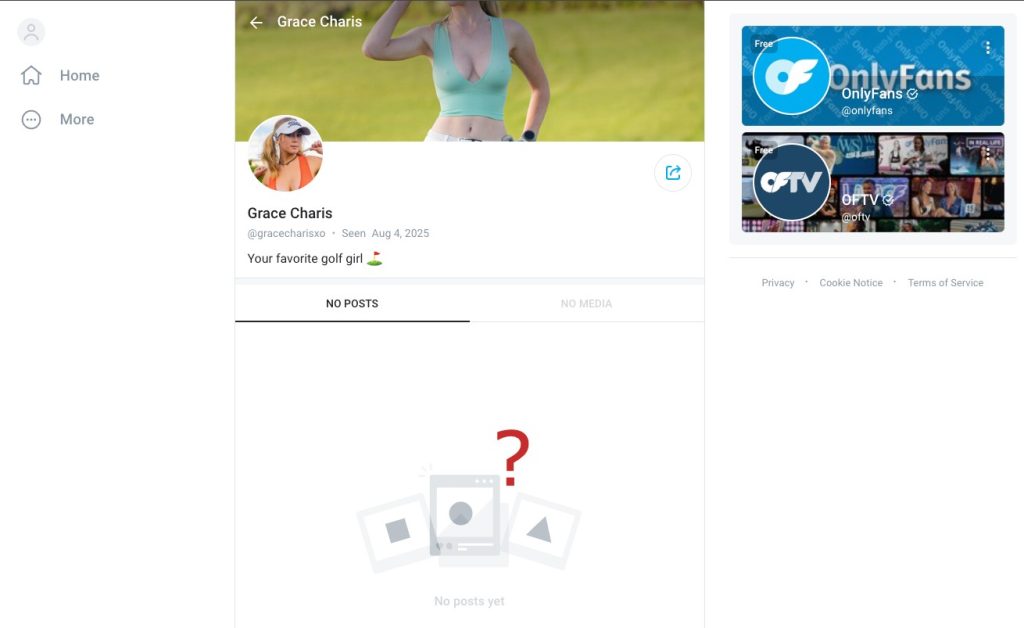You may be surprised when you see your dog eating toilet paper, shredding newspapers, or munching on paper towels.
It’s not just a quirky habit; there might be underlying reasons why your furry friend finds paper so appealing.
Here are the common 8 reasons behind this behavior and how you can help your dog kick the paper-eating habit.
1. Pica
Pica is a medical condition that makes dogs crave and consume non-food items, including paper. This behavior can be triggered by several health issues such as anemia, zinc deficiency, or other nutritional deficiencies.
Your dog isn’t trying to be troublesome; they’re actually trying to cope with a physical condition that they can’t explain.
Anemia, for instance, reduces the number of red blood cells in your dog’s body, which can lead to a decreased appetite for their regular diet and a strange attraction to paper. Similarly, a zinc deficiency might send your dog searching for alternative sources of nutrition.
If your dog suddenly starts eating paper or other non-food items, a trip to the vet is in order to rule out pica and its possible causes.
2. Nutritional Deficiencies
Sometimes, the answer to the question of why your dog is eating paper could lie in their diet. Nutritional deficiencies can lead to unusual eating habits as your dog tries to supplement its diet with whatever it can find, including paper.
This behavior is more than just a quirky trait; it’s a sign that your dog’s nutritional needs are not being met.
You need to ensure your dog is on a well-balanced diet, suitable for their age, breed, and health condition. Sometimes, the solution is as simple as switching to a higher-quality dog food or incorporating dietary supplements recommended by your vet.
As you may know, a well-nourished dog is less likely to seek out non-food items to satisfy any missing nutrients.
3. Anxiety
Dogs experience the world differently when they’re anxious. For some, chewing or shredding paper can be a soothing activity during times of stress or nervousness.
Just like humans who might bite their nails or fidget with objects to help manage anxiety, dogs may turn to shredding paper as a way to cope. This behavior can often be observed during thunderstorms, fireworks, or in the presence of unfamiliar guests.
Anxiety in dogs can stem from various sources, and identifying the root cause is important. Separation anxiety, for example, can lead to destructive behaviors, including paper eating, if your dog feels stressed when left alone.
Providing comfort and reassurance, establishing a routine, and in some cases, consulting with a veterinary behaviorist, can help manage anxiety-induced paper eating habits.
4. Boredom
A lack of mental and physical stimulation can drive dogs to engage in all sorts of unusual behaviors, including eating paper. Boredom in dogs isn’t much different from human boredom—they’re seeking something, anything, to do.
When their toys no longer excite them and they’ve explored every nook and cranny of your home, that roll of toilet paper suddenly becomes an interesting target.
Combatting boredom requires introducing new activities and challenges to keep your dog entertained. Interactive toys, puzzle feeders, and regular playtime can redirect their focus away from paper.
5. Get Attention
Dogs are smart. They quickly learn that certain behaviors get them the attention they crave, even if it’s negative attention. If your dog notices that eating paper gets a rise out of you, they may continue this behavior simply to engage with you.
While it’s hard to ignore your dog when they’re doing something they shouldn’t, giving them attention for undesirable behavior can reinforce it.
To reduce your dog’s attention-seeking behavior of eating paper, it’s effective to gently redirect their actions as you notice them without scolding. Offer an alternative activity or toy that is safe and enjoyable.
Positive reinforcement when they engage with appropriate toys can also help. Moreover, ensuring your dog receives sufficient affection and interactive playtime daily can reduce their need to seek attention in less desirable ways.
6. Taste and Smell
Believe it or not, the taste and smell of paper might be appealing to your dog, especially if it’s used paper goods. Items like napkins, tissues, or paper towels can retain scents and flavors from food, making them irresistible to some dogs. This attraction is purely sensory and, though odd to us, is a simple matter of curiosity and exploration for your dog.
To prevent your dog from eating paper due to its taste and smell, it’s helpful to keep such items out of their reach. This can mean making sure trash cans are covered or behind closed doors and keeping bathroom doors shut to block access to toilet paper.
Offering your dog toys that are safe to chew and that engage their senses might also divert their attention away from paper goods.
7. Feel
The physical sensation of ripping and swallowing paper can be satisfying for some dogs. This behavior is similar to why dogs like to shred toys or chew on different textures; it provides a sort of tactile feedback that they find enjoyable.
It’s a sensory experience that doesn’t necessarily mean your dog is trying to eat the paper for nutritional reasons but enjoys the process involved.
Providing a variety of chew toys with different textures can satisfy your dog’s need for tactile exploration. Toys designed for shredding or with parts that move can mimic the sensation of tearing paper without the potential health risks.
Regularly rotating these toys can keep your dog’s interest peaked and distract them from seeking out paper items.
8. Watching Roll Unwind
For some dogs, the fascination with eating paper, particularly toilet paper, stems from the joy of watching a roll unwind. This behavior is both a game and a visual spectacle for them, combining the thrill of the chase with the satisfaction of destroying the roll.
The act of unrolling toilet paper can stimulate a dog’s predatory instincts, mimicking the motion of chasing prey. There’s a certain charm and excitement they find in this activity, much to the dismay of their human companions.
You can restrict access to toilet paper and paper towels to discourage this specific behavior, . Keeping bathroom doors closed or toilet paper rolls out of reach (such as in a closed cabinet) can prevent your dog from engaging in this activity.
Replacing this behavior with more appropriate games that stimulate their chase and capture instincts can also be beneficial. Consider using toys that roll or can be thrown, to mimic the motion and provide a healthier outlet for their instincts.
9. Other Reasons
Dogs are diverse in their habits, and sometimes their reasons for eating paper might not fit neatly into any one category. For example, puppies might eat paper simply out of curiosity as they explore their environment. In older dogs, it could be a sign of cognitive dysfunction or a habit that has simply become ingrained over time.
Conclusion
Health issues aside, if your dog is eating paper but otherwise healthy and happy, evaluate their environment for ways to enrich it further. Ensuring they have plenty of physical exercise, mental stimulation, and social interaction can reduce many undesirable behaviors.
Sometimes, a more structured routine with regular feeding, playtime, and training sessions can provide a sense of security and fulfillment, reducing the appeal of paper.
Moreover, regular veterinary check-ups are necessary, as they help catch any underlying health issues early on. If your dog continues to eat paper despite making changes to their diet, environment, and routine, consult your vet. They might recommend additional tests or a visit to a veterinary behaviorist to address the issue more comprehensively.
Managing a dog’s paper-eating habit often requires a mix of detective work, patience, and sometimes professional help.
Each dog is unique, and what works for one may not work for another. The key is to observe your dog’s behavior closely, understand the motivation behind it, and then take steps to reduce the issue of eating paper with your love and care.





